Location:
PMKI > Project
Controls and Scheduling > Controls
professionals, skills, competency & training.

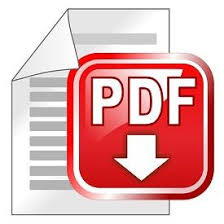
- Project control competencies and
skills
- EVM and CPM schedule training
- Scheduling and controls
certifications
- External Web-links & Resources
Other related sections of the PMKI:
- Competencies &
Interpersonal Skills
- Communication Management
For the last 60+ years, planning and scheduling has been a craft either self-taught or occasionally by the transfer of knowledge from ‘masters’ to ‘apprentices’. In the last 40+ years, many people have confused learning to use a scheduling tool, with learning how to make use of the tool to develop effective schedules that have a positive affect on project outcomes. As a consequence nearly 50% of projects finish late! The core competence of a project controls professional is creating useful information that is used by management to improve project outcomes.
DP: The Roles and Attributes of a Scheduler considers the personal skills and competencies needed by a person to be an effective scheduler and describes the various 'roles' a scheduler will have during the life cycle of a typical project including the difference between planning and scheduling and the scheduling value proposition. Open the paper.
DP: GAPPS (2019) A Framework for Performance Based Competency Standards for Project Controls. Global Alliance for Project Performance Standards (GAPPS) is a volunteer organization working to create consistency in global standards.This framework defines the competences expected of a project controller.
See also: The problem with CPM.
 Easy CPM is a course-in-a-book designed to
provide practical guidance to people involved in
developing, or using schedules based on the Critical Path
Method (CPM). The book is designed to act as a reference
and practice guide for people implementing CPM scheduling
after they have learned to use the CPM scheduling software
of their choice.
Easy CPM is a course-in-a-book designed to
provide practical guidance to people involved in
developing, or using schedules based on the Critical Path
Method (CPM). The book is designed to act as a reference
and practice guide for people implementing CPM scheduling
after they have learned to use the CPM scheduling software
of their choice.
Easy CPM is compatible with PMI's Practice Standard for Scheduling, and is a suitable study resource for the CPM component of the PMI-SP and PMP exams.
$35.00 AUD (Plus GST, Australian customers only). Size: 295 pages, 120 questions, file size 22 Mb.
Open the Book2Look preview to see the full table of
contents, sample pages, and sample questions &
answers. Open Book2Look preview
Developing an Effective CPM Schedule 1-Day
workshop designed to augment Easy CPM. This
workshop focuses on developing an effective schedule in
any software tool. It is designed to help project managers
and schedulers lift their scheduling practice to the next
level. See more.
_____________________________
 Easy
EVM is a self-paced course-in-a-book,
supported by Mosaic Project Services Pty Ltd. Its purpose
is to provide practical guidance to people, and
organizations, involved in either implementing an earned
value management system, or using information created by
an earned value management system. The book provides
guidance on the concepts, responsibilities, integration,
and processes, required for the implementation and use of
earned value management based on ISO 21508: Earned
Value Management in Project and Programme Management.
Easy EVM, and ISO21508, are compatible
with PMI's The Standard for Earned Value Management
(ANSI/PMI 19-006-2019), and is a suitable study resource
for the EVM component of the PMI-SP and PMP exams.
Easy
EVM is a self-paced course-in-a-book,
supported by Mosaic Project Services Pty Ltd. Its purpose
is to provide practical guidance to people, and
organizations, involved in either implementing an earned
value management system, or using information created by
an earned value management system. The book provides
guidance on the concepts, responsibilities, integration,
and processes, required for the implementation and use of
earned value management based on ISO 21508: Earned
Value Management in Project and Programme Management.
Easy EVM, and ISO21508, are compatible
with PMI's The Standard for Earned Value Management
(ANSI/PMI 19-006-2019), and is a suitable study resource
for the EVM component of the PMI-SP and PMP exams.
$35.00 AUD (Plus GST, Australian customers only). Size: 240 pages, 100 questions, file size 14 Mb.
Open the Book2Look preview to see the full table of
contents, sample pages, and sample questions &
answers. Open Book2Look preview
Earned Value Management for Business.
This workshop is designed to provide students with an
understanding of the power of using Earned Value as a
practical control and monitoring technique to deliver
added value and insight from their overall project control
process. The approach adopted is to assume everyone uses
some form of software for EV, therefore rote learning of
the formulae is pointless. What’s needed is an
appreciation of the terms used and the value of the
information created by the tools. Workshop available in
half-day, one-day and two-day formats: view
course details.
Until recently, certifications in scheduling were focused exclusively on senior schedulers and had very little effect on the profession and practice of scheduling. These factors have now started to change - new ideas and paradigms are emerging that will change the way people advance their careers in planning and scheduling. Initiatives by The Guild of Project Controls, and Planning Planet are focused on delivering a career framework for professional ‘Time Managers’, taking people from novice, to a practitioner skilled in the art of planning and scheduling.
Prs:
Should your schedulers be certified?
This paper focuses on these initiatives to revitalize our
industry by creating a career path for planners and
schedulers as well as clearly identifying the benefits of
certification for organizations that employ planners and
schedulers. The answer to the question posed in this
presentation’s title is YES!
Download the presentation.
 Australian
Diploma in Project Controls. This
qualification has been designed to help you or your team
gain the capabilities needed to coordinate all aspects of
project controls through the project lifecycle.
Australian
Diploma in Project Controls. This
qualification has been designed to help you or your team
gain the capabilities needed to coordinate all aspects of
project controls through the project lifecycle.
Course Outline
• Delivery method: This course is delivered via a blended
method (virtual/classroom lectures).
• Duration: The course duration is 12 months. Also,
Diploma of Project Controls consists of
four terms per year, each lasting up to 11
weeks, with an average of 14 contact hours per week.
• Units: Student must complete 11 units (9 core units and
2 elective units).
- download
the course details.
PCI
offer courses globally, click through for more
information.
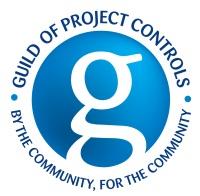 Guild
of Project Controls. Offering standards and
certifications based on proven competency. The Guild was
been formed at the request of the members from Planning
Planet the worlds' largest Project Controls community with
150,000+ members. Free access is provided to the Project
Controls Compendium and Reference (GPCCaR).
Guild
of Project Controls. Offering standards and
certifications based on proven competency. The Guild was
been formed at the request of the members from Planning
Planet the worlds' largest Project Controls community with
150,000+ members. Free access is provided to the Project
Controls Compendium and Reference (GPCCaR).
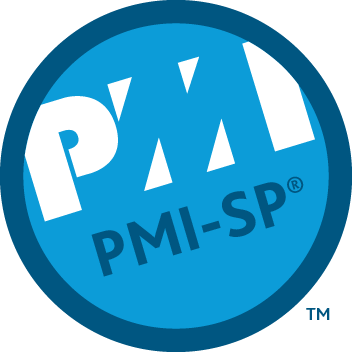 The Scheduling Professional (PMI-SP) certification
recognizes the need for a specialist role in project
scheduling. Click through for some general
information on the PMI-SP
exam. Successful PMI-SP candidates typically
use multiple study aids including, self-study and will
spend many hours to prepare, the resources on this web
site are consistent with the examination.
The Scheduling Professional (PMI-SP) certification
recognizes the need for a specialist role in project
scheduling. Click through for some general
information on the PMI-SP
exam. Successful PMI-SP candidates typically
use multiple study aids including, self-study and will
spend many hours to prepare, the resources on this web
site are consistent with the examination.
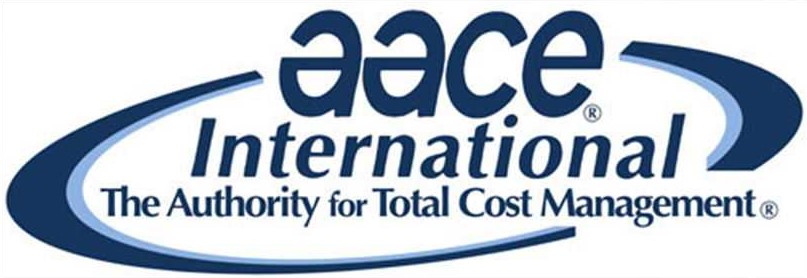 AACEi PSP. Planning &
Scheduling Professional (PSP) A PSP is a skilled planning
and scheduling professional with advanced experience in
project planning, and developing, monitoring, updating,
forecasting and analyzing integrated project schedules.
AACEi PSP. Planning &
Scheduling Professional (PSP) A PSP is a skilled planning
and scheduling professional with advanced experience in
project planning, and developing, monitoring, updating,
forecasting and analyzing integrated project schedules.
AACEi also offer the Certified Scheduling Technician (CST)
for people who do not meet the PSP requirements.
AACEi EVP. An Earned Value Professional (EVP) is a practitioner of Earned Value with demonstrated mastery of contract language as it relates to Earned Value application, the organization of a project’s scope into meaningful structure for execution; planning scheduling and budgeting the project work from initiation through close out using an integrated cost/schedule tool; highly proficient in monitoring project progress for performance measurement; an earned value management system (EVMS). The experienced EVP will have broad experiences in the interpretation of the EV data/metrics and possess the skills to provide coherent, relevant communications (oral and written) to all levels of project stakeholders (internal and external).
Access the Guild of Project Controls Body of Knowledge.
A suite of process-based documents which define Project
Controls (membership required): http://www.planningplanet.com/guild/GPCCAR-modules
 Project
Management College of Scheduling (PMCOS). An
organization of professionals dedicated to advancing the
practice and profession of project planning and
scheduling, and promoting the implementation of accurate,
ethical schedules throughout the World: https://pmcos.org/
Project
Management College of Scheduling (PMCOS). An
organization of professionals dedicated to advancing the
practice and profession of project planning and
scheduling, and promoting the implementation of accurate,
ethical schedules throughout the World: https://pmcos.org/
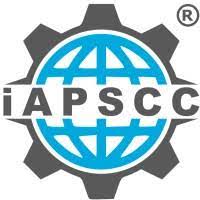 international
Association of Planners, Schedulers, and Cost
Controllers (iAPSCC). An international chapter-based
organization advocating for the professional designation
and value-contribution recognition for maintenance and
project planning, scheduling, and cost control
individuals: https://iapscc.com/
international
Association of Planners, Schedulers, and Cost
Controllers (iAPSCC). An international chapter-based
organization advocating for the professional designation
and value-contribution recognition for maintenance and
project planning, scheduling, and cost control
individuals: https://iapscc.com/
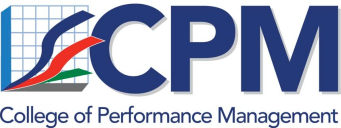 College
of Performance Management (CPM). a global,
non-profit, professional organization dedicated to
developing and disseminating the principles and practices
of earned value management and other project performance
management techniques: https://mycpm.org/
College
of Performance Management (CPM). a global,
non-profit, professional organization dedicated to
developing and disseminating the principles and practices
of earned value management and other project performance
management techniques: https://mycpm.org/